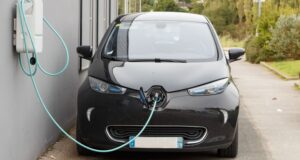FAQs About Electric Vehicles Chargers
What Exactly Is an EV Charger?
Like any other charging item or technology, electric cars and plug-in hybrid electric vehicles need an EV charger to keep the battery charged.
What Is the Process of EV Charging?
At its most basic, an EV charger draws an electrical current from a 240v outlet or the grid to which it is connected and provides it to the car, much like any other appliance or gadget that is charged by plugging it into a wall.
Which EV Charger Should You Buy for Your Home?
Trickle chargers and AC chargers are the two types of home electric vehicle chargers.
- A trickle charger connects to the power source through a normal 220v 3-pin socket on one end. A trickle charger may provide 8-10 miles of range per hour to the battery. They are not useful unless you just drive small miles every day or top-up every night since it may take anywhere from 12 to 24 hours to charge a battery pack completely.
- AC chargers (also known as Wall boxes) are a far better solution for most EV users and are often placed in homes, businesses, and other commercial locations. These electric vehicle chargers feature 3.7kW or 7kW power outputs. Most EVs can be charged from empty to full range in 8-10 hours.
- Commercial settings with a three-phase power supply may also install 22kW electric vehicle chargers with faster charge periods, known as DC chargers.
What Exactly is an EV Fast Charger?
An EV fast charger is a kind of electric vehicle charger that can charge your car’s battery from empty to almost full in around 40 minutes. These EV charging solutions are in public spaces (such as highway service stations or dealerships) and use DC to supply power ranging from 50kW to 200kW. They are not financially effective for households or most organizations due to their high installation costs and power consumption.
How Do EV Charging Stations in Public Work?
There are a few things to consider while parking in front of an EV charging station. The charging station’s equipment and displayed signs should make it obvious how to utilize it. For example, the station may be provided free of charge, may require a key FOB or another access device, or may require credit card payment. Similar to other parking situations, such as only being permitted to park in a lot for free if you’re a customer, or you may be required to pay a parking meter during specific times and on specific days.
How to Select the Most Appropriate Electric Vehicle Charger
If you’ve determined that the provided charger is inadequate for your daily charging needs, you’ll need to consider various factors to choose which EV charger is ideal for you.
 Cost: Several EV chargers are available, ranging from $200 to over $1,000.
Cost: Several EV chargers are available, ranging from $200 to over $1,000.
- Plug-in or Hardwired: EV chargers may be either plug-in or hardwired. Plug-in devices allow you to quickly remove the charger and use it in another area or return it for a replacement if there is ever a problem. Hardwired chargers are permanently attached to the wall and must be disconnected and removed by an electrician.
- Cable Length: EV chargers come with 12 to 25 feet cables. Purchase a cable that is at least 20 feet long. Choose one with a cable long enough to reach the charging port on your vehicle regardless of the location in which it is parked.
- Smart or Dumb: Smart EV chargers include applications that let owners manage charging sessions, monitor real-time charging, initiate/stop charging sessions, plan charging sessions and set up reminders to the plugin. Dumb chargers are incapable of performing any function other than charging your EV, which is all that some EV owners desire from their chargers. Dumb chargers do indeed shut off when the battery is fully charged.
- Power Delivery: Your EV charger should be able to give at least 32 amps (7.7 kW) to the car and preferably 40 amps (9.6 kW). We suggest this because, even if your current EV can’t handle that much power, the next one you acquire will almost certainly be able to, and you’ll be future-proofing your garage by obtaining the correct charger now.
- Safety-Certified with a 3-Year Warranty: A large range of EV charging equipment is accessible on the internet nowadays. Many of these items are low-quality, low-cost equipment that is not safety-certified and has very limited warranties. Ensure that the EV charger you choose has been safety certified by reputable organizations and that it comes with at least a 3-year guarantee.
For the best Electric Vehicle Chargers in the Abbotsford area, visit Gregg Electric online or call us at (604) 557-4734 today.



